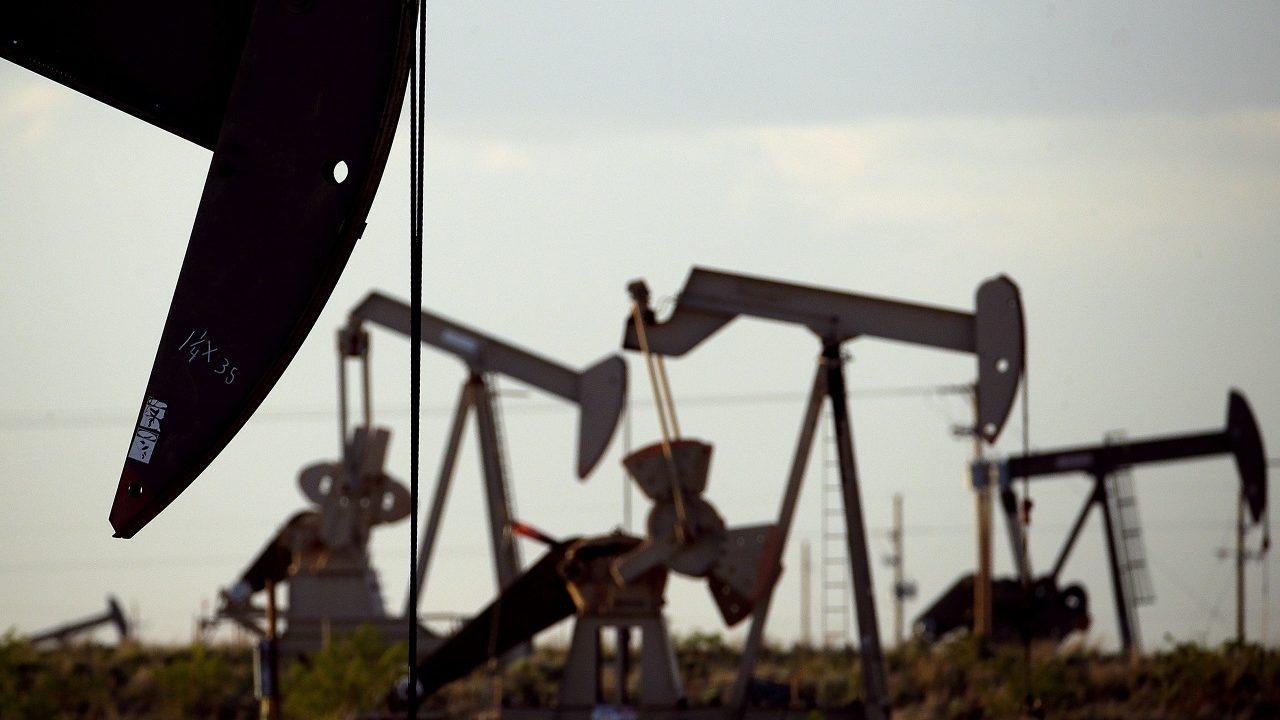Oil looks to rebound from February plunge
U.S. crude and Brent each gaining 3 percent on Monday
The price of oil is rebounding from a February plunge, adding another 3 percent to the surge it made on Friday.
Oil prices fell dramatically in mid-February, but had been steadily climbing back as the number of new cases of the coronavirus in China slowed. In the last week, however, reports of the spreading virus knocked prices down.
The benchmark for U.S. crude oil fell 16 percent during the week, settling Friday at $44.76 a barrel. Brent crude, the international standard, dropped 14 percent for the week to its lowest levels since July 2017, closing Friday at $50.52 a barrel.
GET FOX BUSINESS ON THE GO BY CLICKING HERE
Meanwhile, shares of Exxon Mobil tumbled to $49.82 on Thursday, reaching a 15-year low, before rebounding more than 3 percent on Friday. Chevron Corp. shares hit their lowest level in nearly four years on Friday.
That has sent shares tumbling for oil giants like Exxon and Chevron while smaller producers with idling rigs continue to slash jobs.
Hundreds of new cases of the virus that causes the COVID-19 disease have been announced in recent days outside of China. The list of countries touched by the illness has climbed to nearly 60 as Mexico, Belarus, Lithuania, New Zealand, Nigeria, Azerbaijan, Iceland and the Netherlands reported their first cases. More than 85,000 people worldwide have contracted the illness, with deaths topping 2,900.
AUTHORITIES ANNOUNCE 2ND CORONAVIRUS DEATH IN US
Oil industry analysts fear that what they thought was a contained disruption may instead lead to more travel restrictions and even less oil consumed.
If demand for oil and the price of a barrel continues to fall, that may result in lower gasoline prices — a potential bright side for consumers, who account for about 70 percent of U.S. economic activity.
Gasoline prices have been fluctuating in recent weeks, but nothing significant that could be attributed to the coronavirus, said Jeanette Casselano, director of public relations at AAA. Prices tend to rise for the summer driving season, but the effects of coronavirus on the price of oil could mitigate that.
CORONAVIRUS-WORRIED SHOPPERS EMPTY CALIFORNIA, OREGON GROCERY SHELVES
Lower prices at the pump, however, aren’t necessarily good for the U.S. economy overall. When energy prices fall, energy companies tend to cut back on investment and jobs. A freefall in gasoline prices led to a sharp drop in U.S. business investment in 2016, for instance -- one reason the country’s economic growth slowed to 1.6 percent that year from 2.9 percent in 2015.
When the coronavirus first hit, the Energy Information Administration predicted global oil demand would fall to 100.3 million barrels per day in the first quarter of 2020, down about 900,000 barrels, or 1 percent, from what was estimated in January. The agency said it expects global oil demand to rise by 1 million barrels per day in 2020, which is lower than its growth prediction last month of 1.3 million barrels per day this year.
Those numbers were released in mid-February, before the number of reported cases outside of China began to rise significantly, so analysts expect estimates to get worse.
CLICK HERE TO READ MORE ON FOX BUSINESS
In the U.S., many oil and gas producers were already struggling under the financial pressure of low prices, caused in part by oversupply as companies figured out how to produce oil and gas more cheaply than ever before. In the past five years, 208 oil producers have filed for bankruptcy protection after racking up approximately $121.7 billion in debt, according to law firm Haynes and Boone.
The Associated Press contributed to this article.





















